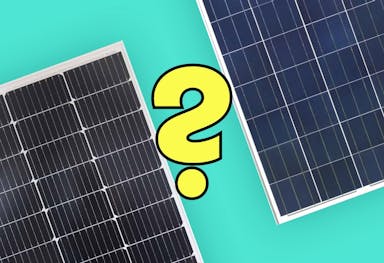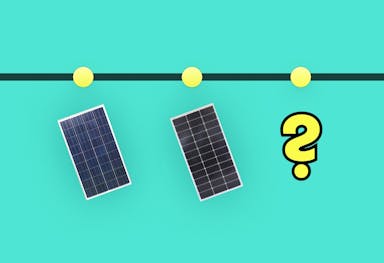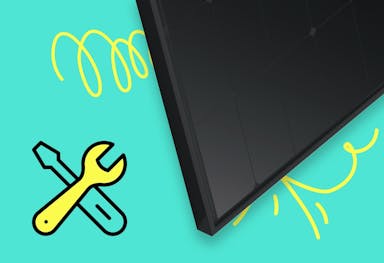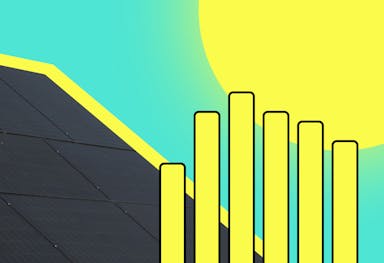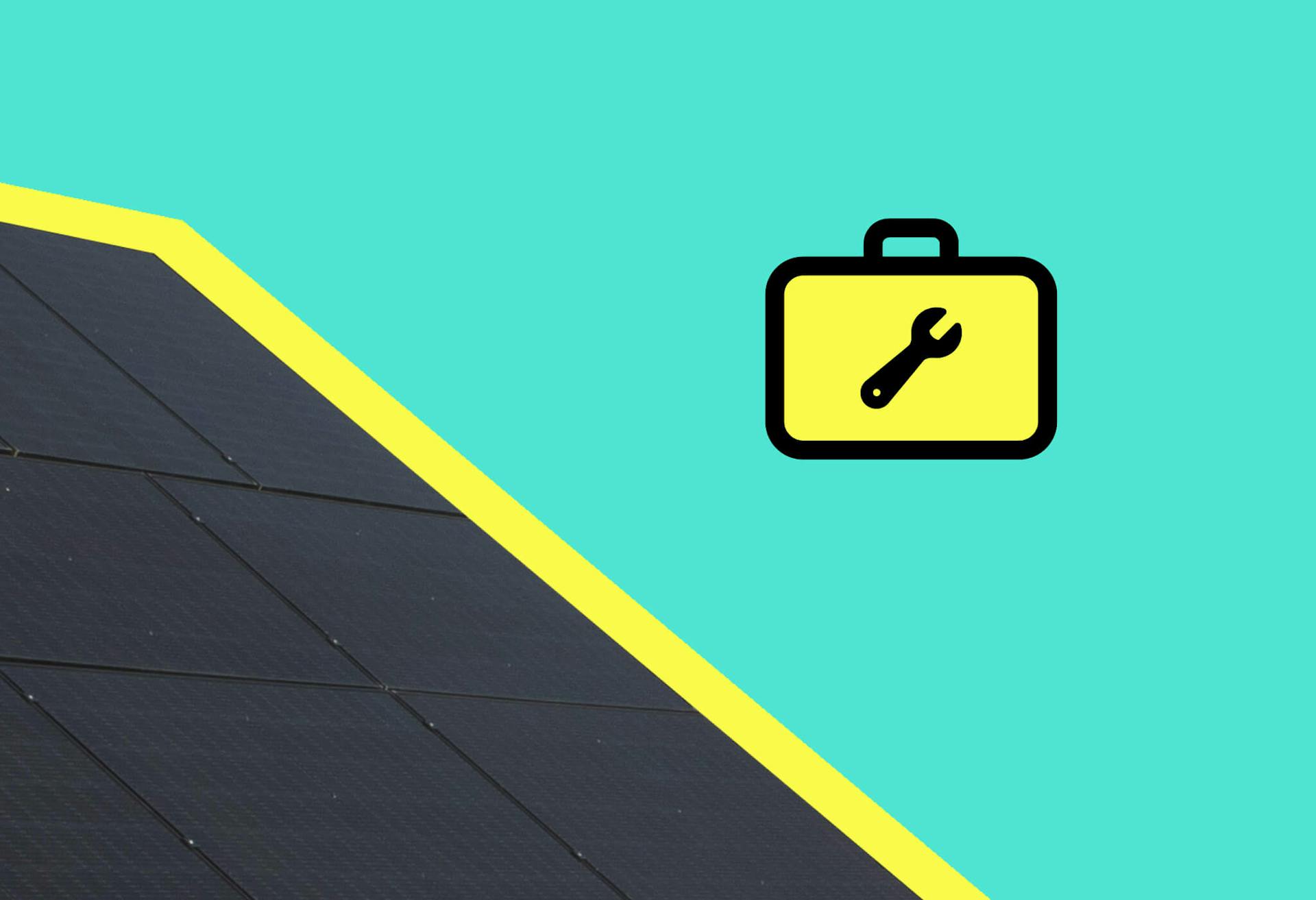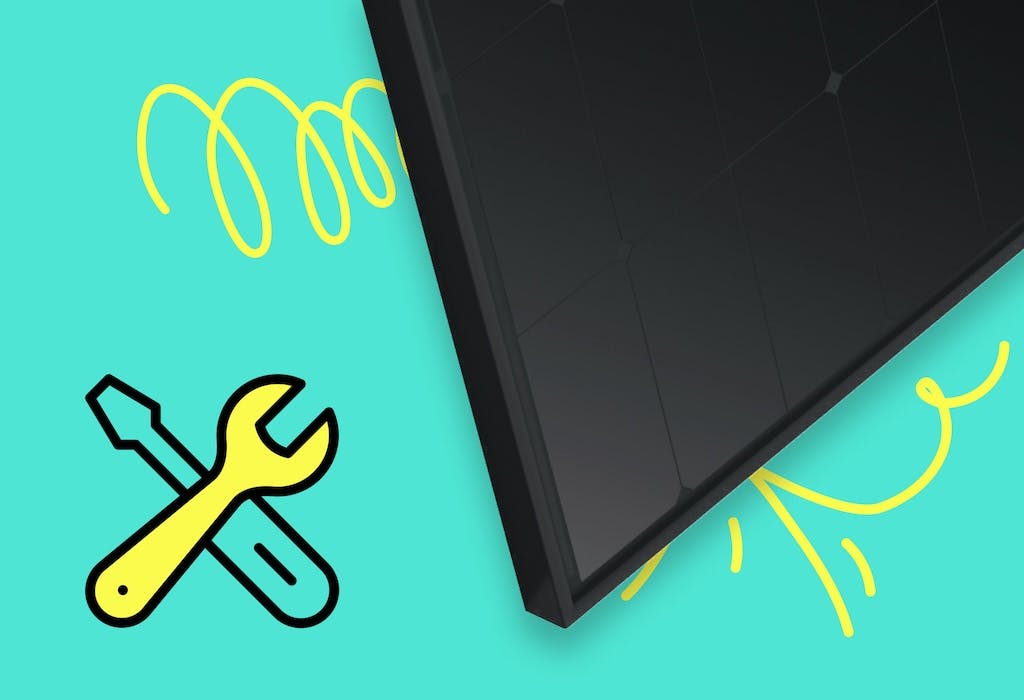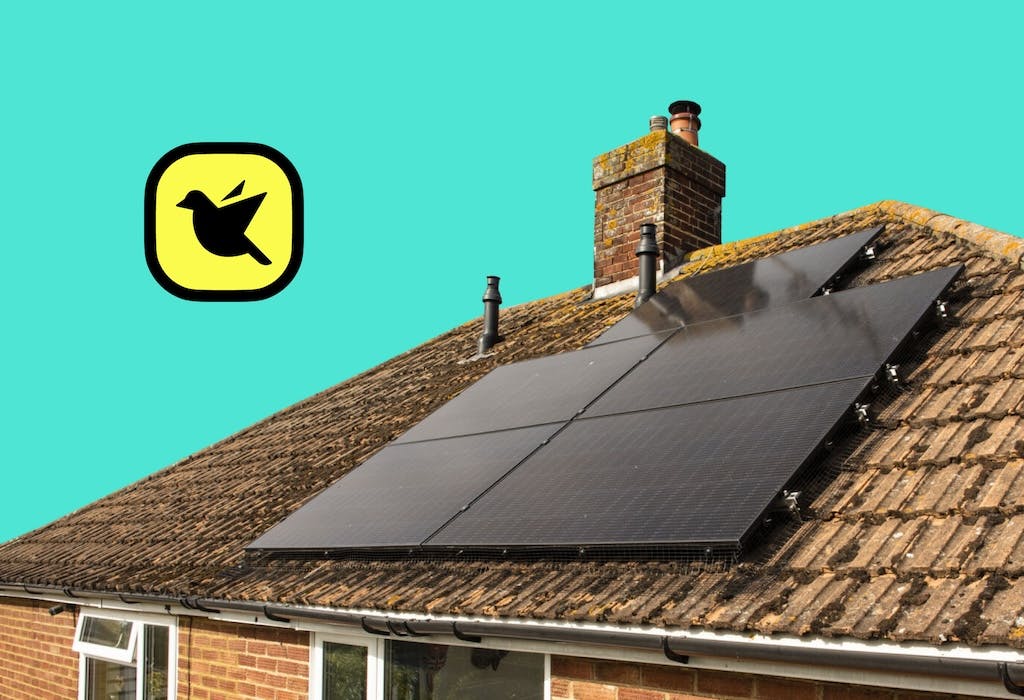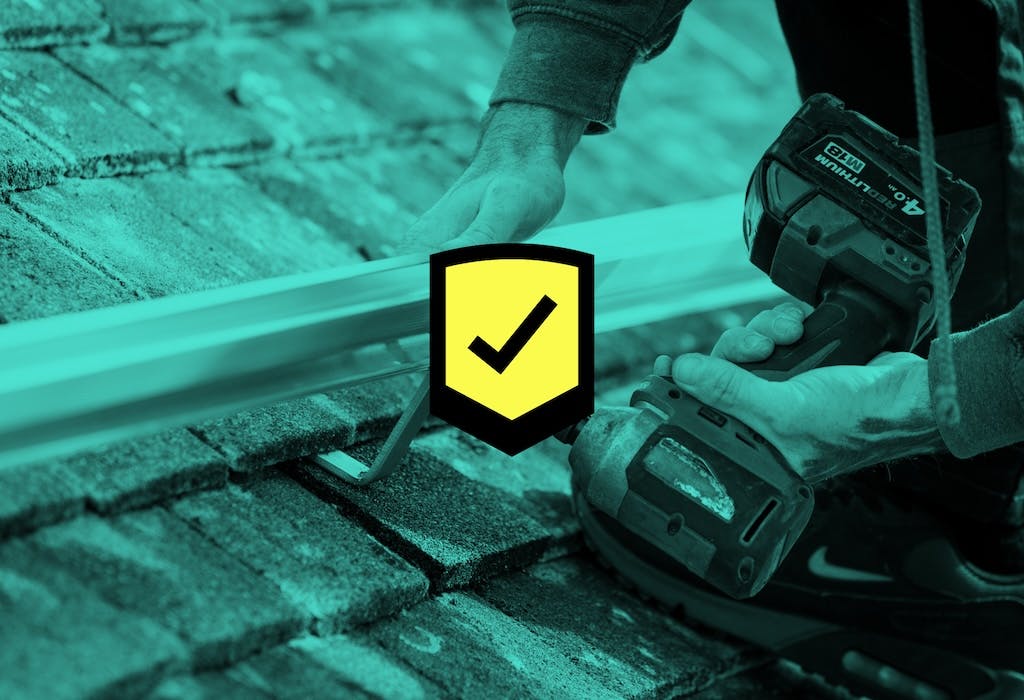- Solar advice hub
- Maintenance
- How long do solar panels last?
How long do solar panels last?
Find out how long solar panels usually last for, how quickly they degrade over time, and what you can do to maximise their lifespan.


Why you can trust our content
We know that the solar industry is full of misinformation, but we only use reliable sources, including:
- Our experienced solar experts, installers and system designers
- Our own database of solar & battery system designs
- Authoritative bodies like MCS and the UK government



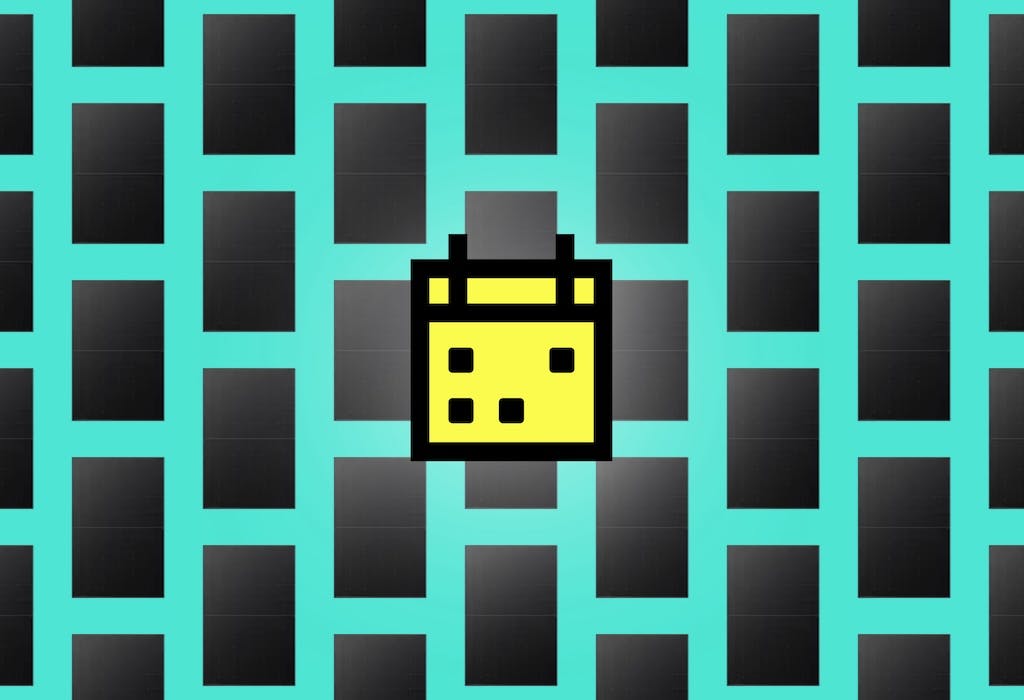
Calculate savings
What kind of home do you live in?
Calculate savings
What kind of home do you live in?
Solar panel lifespan: at a glance
Given that solar panels are supposed to be an investment with a financial return, it's important that they last a long time. Nobody is paying for all that scaffolding, labour and hardware only to have their system give up the ghost after just a few years.
Wondering how long solar panels tend to stay at their best? This article will explore all the factors that can affect the longevity of solar panels, from installation to maintenance and beyond.
And if you’re wondering how much a solar & battery system could save you, just answer a few quick questions below and we'll provide an estimate for you.
Find out how much you can save
What kind of home do you live in?
What’s the average lifespan of a solar panel?
A modern, monocrystalline solar panel usually lasts around 30-40 years, depending on its quality, the conditions it has to endure, and how well it's been maintained.
However, it doesn't necessarily mean that a solar panel completely shuts down and stops working between year 30 and 40. A solar panel's efficiency (and consequently its output) falls by a very small amount each year, and so it just naturally reaches a point where output has fallen too low for the panel to be worth having.
Saying that, there are some very impressive solar panels at Oldenburg University, Germany that have been generating electricity since 1976 (and were moved in 1981 to the Energielabor building).
We spoke to a representative from the university, and they said: “Most of the photovoltaic modules installed at the Energielabor in 1981 are indeed still working; they feed more than 3,000 kilowatt-hours of electricity into the grid per year.”
Considering these 336 solar panels had a power rating of 3.46 kilowatt-peak (kWp) when they were initially set up, this shows some serious durability. Between 1976 and 2011, the system’s efficiency rating only dropped from 8.55% to 8.2%.
Perhaps not every solar panel will last 50 years, but it's also too early to say quite how long this modern generation of monocrystalline solar panels will live for.
As long as your solar panels are good quality and you've kept on top of your solar panel maintenance, your system should continue to function beyond its warranty.
How long is a solar panel’s warranty?
Solar panels usually come with two types of warranties:
- A product warranty
- A performance warranty
The product warranty covers defects in the solar panel itself and typically covers around 20-25 years, although some manufacturers offer longer warranties up to 30 years or beyond.
The performance warranty guarantees that the solar panels will produce a certain percentage of their rated power output over time, usually promising around 80-90% of their original output by the end of the warranty period.
Solar panel warranties go some way in protecting your investment, but it's not advised to rely on them as your only source of maintenance support. If anything goes wrong with your system that isn't the fault of the manufacturer, they won't help, and even if it is their fault, the process of making a claim can be very arduous.
That's where the Sunsave Guarantee comes in - a comprehensive, 20-year maintenance package for every Sunsave Plus solar & battery system. Find out more here.
Verified expertIf one of your solar panels has an issue that you believe to be the fault of the manufacturer, you can claim on your solar panel’s warranty, but this usually involves quite a lot of time and effort. As part of the Sunsave Guarantee, we’ll take care of any solar panel warranty claims so you won’t have to lift a finger.
Alfie Ireland
Head of Operations & Technical at Sunsave
Alfie has worked in green tech for over a decade. During his four years at OVO, he helped develop the world’s largest domestic vehicle-to-grid trial.
Monocrystalline vs polycrystalline solar panel lifespan
If you've started doing your research before making the switch to solar, you may keep seeing these two rather long words cropping up online: monocrystalline and polycrystalline.
These terms are referring to the two main types of solar panel on the market right now.
Polycrystalline solar panels are older, less technologically advanced, blue in colour, and cheaper. They're made by melting multiple silicon crystals and combining them in a square mould.
Monocrystalline solar panels are newer technology, black in colour, and a bit more expensive. They're made from single-crystal silicon.
These panels differ in terms of quality, and so naturally they have different lifespans.
Black monocrystalline solar panels tend to last between 30-40 years, although most don’t come with warranties that exceed 30 years. Meanwhile, blue polycrystalline solar panels will start to struggle slightly sooner - usually at the 25-year or 30-year mark - and these come with a shorter warranty.
If you want panels that are going to last for the long haul, definitely choose monocrystalline.
To find out more, check out our guide to why black solar panels are better than blue.
Verified expertPolycrystalline solar panels have such low efficiency and wattage, they’re not worth getting - even if they were still available. Monocrystalline solar panels can now produce almost twice as much as what the old polycrystalline solar panels could generate.
Tom Brehme
Technical Manager at Sunsave
Tom has worked in residential solar installation for more than a decade, and is a fully qualified electrician.
Has solar panel lifespan improved?
Solar panel lifespan has certainly improved, but it's been very good for a number of decades. These big slabs of silicon have no moving parts, which means they can sit under the sun for a long time without the risk of much going wrong.
As mentioned earlier, there is a solar panel array at Oldenburg University, Germany that was installed in 1976, and is still producing a decent amount of electricity today.
A 2017 study conducted by the National Renewable Energy Laboratory (NREL) found that the failure rate of solar panels installed between 1980 and 2000 was twice as high as the failure rate of solar panels installed between 2000 and 2015. In this study, 'failure' is defined as when a panel had to be completely replaced.
This clearly shows significant improvement in the 35 years between 1980 and 2015, and the endless development of solar panel technology by manufacturers will surely only lead to further durability gains.
To learn more, check out our article about whether solar panels are improving.
Curious about the savings you could get from a solar & battery system? Answer a few quick questions below and we’ll provide an estimate.
Find out how much you can save
What kind of home do you live in?
Do solar panels degrade over their lifetime?
Yes, a solar panel goes through a natural degradation process as part of its lifecycle. This means that its ability to convert daylight into electricity is very slightly reduced each year.
Why do solar panels degrade?
Physical degradation is simply an unavoidable fact of solar panel existence - just like ours.
There are various things that cause it, and most of them aren't preventable. For example: internal wires experiencing wear and tear, and long-term exposure to UV rays causing the backsheet to break down. You could hide your panels from the UV rays to protect the backsheet, but then you won't be generating any electricity.
Other causes are a bit more dependent on the environment your solar panels are placed in, and how often they're cleaned, such as: metal frame corrosion, and debris or hail creating tiny cracks in the surface of the panel (which can affect electrical connections).
How much do solar panels degrade each year?
Generally speaking, the degradation rate of monocrystalline solar panels is 0.5% per year.
This means that, after 30 years, most monocrystalline solar panels on the residential market will produce 87% of their original power output.
To learn more about solar, check out our rundown the top 17 facts about solar panels.
Typical degradation of a solar panel over 30 years
How to make your solar panels last as long as possible
If you want your solar panels to last and perform well, you need to take care of them properly. There are important steps you should take before you get the panels installed, and things to stay on top of once the panels are up on your roof. These are:
- Use a good installer
- Monitor their output
- Keep them clean
- Stay on top of maintenance
1. Use a good installer
There's no point paying a premium for top-tier hardware only to have the installation bungled by sub-par installers.
Choosing an experienced, trustworthy installer with all the right accreditations significantly decreases the chances of problems further down the line, and ensures that you'll get the best out of your system.
Always make sure your installer is either accredited by the Microgeneration Certification Scheme (MCS) or Flexi-Orb, as a minimum. On top of that, look out for seals of approval from industry bodies like HIES, Trustmark, and NAPIT, as well as savings estimates that are checked by the Energy Performance Validation Scheme (EPVS).
If that's not enough, keep an eye out for installers that have been approved as a Which? Trusted Trader, as this means they've been through several rigorous rounds of assessment.
And last but not least, have a look at the installer's reviews on websites like Trustpilot.
To find out more, check out our guide to the best solar panel installers in the UK.
2. Monitor their output
Every solar panel system comes with an inverter (otherwise it won't work), and every inverter comes with a mobile app that lets you monitor your system's output.
Seasoned solar panel owners often speak with great delight about their solar panel app, because each one is usually full of colourful charts, live data, and understandably it can get pretty addictive. Particularly if it's telling you every day how much money you're saving.
It's useful to keep an eye on your app and make sure that your solar panel system's output looks normal, because a dramatic drop will signify that something is wrong, and you're unlikely to notice a drop just by looking at your panels.
What is 'normal' output, you ask? In the first few months of having your system, you can compare your system's actual generation with what your installer has predicted - and check if it stacks up. Then, once a few years have passed, you'll be more familiar with what to expect.
Rather not take on that responsibility? Sunsave Plus is the UK's first solar subscription, and every Sunsave Plus system is protected by the Sunsave Guarantee. This includes 24/7 monitoring and maintenance, so our solar experts will remotely keep an eye on your system, troubleshoot any problems and, if necessary, come round to fix things. Click here to learn more.
3. Keep them clean
Solar panels are known as 'self-cleaning', which sounds a little more hi-tech than what's actually happening. They have a waterproof (or 'hydrophobic') coating, just like your anorak, and they're installed at an angle, so whenever it rains, rainwater just rolls right off them.
And if there's any dust or dirt on your panels, most of this should be removed by the rainwater.
So a solar panel's 'self-cleaning' technology isn't quite so effective in very dry countries (well done, UK).
However, despite a solar panel's water resistance, we still recommend that you clean your panels every two or three years in the UK. And if you live right next to dusty farmland or right by the sea, more frequent cleaning is a good idea.
That said, don't risk the danger of climbing onto the roof to do so - instead, we recommend using an extendable soft brush from ground level, or calling in a professional (rough cost is about £10 per panel). Many window cleaners around the UK also offer solar panel cleaning as a service.
If you don't keep your panels clean, the build up of dirt will affect their output and potentially cause them to deteriorate faster.
To learn more, check out our guide to solar panel cleaning.
4. Stay on top of maintenance
Technical experts in the industry estimate that a solar & battery system will require three maintenance call-outs in 20 years - one for the panels, one for the battery, and one for the inverter.
So even though solar panels are made of sturdy stuff and have no moving parts, this doesn't mean they don't encounter issues.
At the very least, the MCS recommends that you have a professional conduct a basic inspection of your panels every 10 years, and a more comprehensive on every 15 years.
However, you're not likely to catch and solve any issues if someone's only looking at your panels once a decade. Solar panel maintenance is important, and it means you always get the best out of your system.
For a proper maintenance support package that'll do the business, check out the Sunsave Guarantee.
Next steps
Solar panels are built to go the distance, so you can expect a set of good, monocrystalline panels to last around 30 or more years.
But things can still go wrong, and there are steps you can take to ensure that your panels last as long as they possibly can.
Look after your panels, and they'll look after your bills.
To find out how much a solar & battery system could save you, enter a few quick details below and we'll generate an estimate for you.
Find out how much you can save
What kind of home do you live in?
Solar panel lifespan: FAQs
Related articles

Written byCharlie Clissitt
Born in Yorkshire and now living in London, Charlie has been in the renewable energy industry since 2017, having worked as a writer and then editor of green technology advisor The Eco Experts. His work has focussed on educating UK homeowners about a wide range of residential power and heating solutions, including solar panels, storage batteries, heat pumps, infrared panels, and EV chargers.
